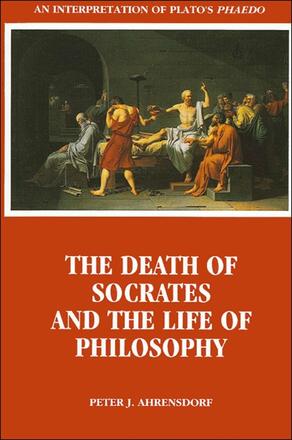
The Death of Socrates and the Life of Philosophy
An Interpretation of Plato's Phaedo
Alternative formats available from:
Shows that the dialogue in Plato's Phaedo is primarily devoted to presenting Socrates' final defense of the philosophical life against the theoretical and political challenge of religion.
Description
While the Phaedo is most famous for its moving portrayal of Socrates' death and its arguments for the immortality of the soul, Ahrensdorf argues that the dialogue is primarily devoted to presenting Socrates' final defense of the philosophic life against the theoretical and political challenge of religion. Through a careful analysis of both the historical context of the Phaedo and the arguments and drama of the dialogue, Ahrensdorf argues that Socrates' defense of rationalism is singularly undogmatic and that a study of that defense can lead us to a clearer understanding and a deeper and richer appreciation of the case both for and against rationalism.
Peter J. Ahrensdorf is Assistant Professor of Political Science and Humanities at Davidson College.
Reviews
"That the psychology of its characters is a key to understanding the argument of a Platonic dialogue is a principle effectively applied in this reading of the Phaedo and well supported by the results: in bringing out the differences in the perspectives of Socrates' two interlocutors on this occasion—one primarily concerned with the question of the goodness of the philosophic life, and indeed of life as such, the other motivated by a deep skepticism about the possibilities of human reason—this study leads us to see why the conversation in the Phaedo has to be divided between them, and how the strategy of each argument is motivated by its particular addressee." — Ronna Burger, Tulane University
"This clear, extremely well-written book distinguishes itself from other fine works on the Phaedo by its careful attention to Socrates' rhetoric. It does a masterful job of showing how Socrates intends his arguments to affect Simmias and Cebes—as well as readers like them—even in cases where Socrates must have seen those arguments to be logically weak. Ahrensdorf's insight into the differences between Simmias and Cebes is excellent." — Chris A. Colmo, Rosary College